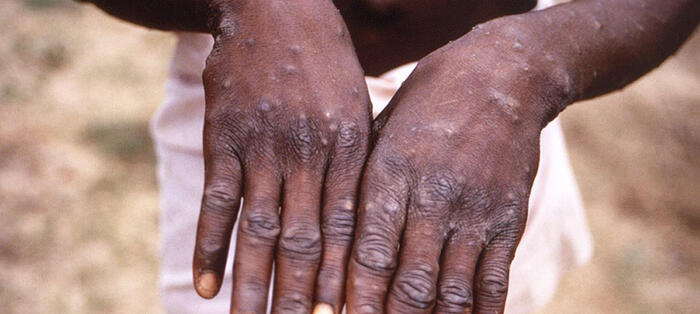There are two i vaccines against smallpox that could be used against monkeypoxone is produced by the Emergent BioSolutionan American company, the second from the European company Bavarian Nordic, based in Denmark. To take stock of the two vaccines currently available in Europe and North America, which are not currently being administered, is an article in Science magazine signed by Jon Cohen.
Smallpox in the past was a serious scourge capable of killing 30% of infected people but thanks to a widespread vaccination campaign in the 1960s and 1970s it was eradicated, in fact, it is the only pathogen so far completely eliminated if we exclude some samples stored in the laboratory for study purposes. The drastic reduction in cases in the early 1970s had gradually led to reduction in the administration of vaccines as the side effects of the treatment (with about one death for every million vaccinated) had now outweighed the potential benefits. Since then, production has practically stopped and to date there are only two smallpox vaccines available, capable of protecting even from monkeypox. That of the American Emergent BioSolutions which is considered similar to the vaccine used during the eradication campaign and can still cause severe reactions and even death in people with compromised immune systems. The other, from the Bavarian Nordic, uses a non-replicating form of Vaccinia (a virus very similar to that of smallpox), specifically designed to cause fewer side effects. The latter, specifies the article on Science, is the only explicitly approved vaccine for monkeypox. The two vaccines are able to prevent the disease even if used up to 4 days from exposure to the virus and could therefore be used to protect those who have come into contact with the infected but, although they are available, at the moment the two vaccines are not available in any country. are currently prescribed. So far, no country has announced plans to use these vaccines and stocks of both are currently low.
ANSA.it
First case in Tuscany, a 32-year-old man from Arezzo returned from a trip from the Canaries. In Lazio 15 in isolation (ANSA)
however, some European countries are beginning to have the first infections. As the Sloveniawhere the health authorities have confirmed the first case of monkeypox, on a patient returned from the Canary Islands. As reported by the head of the Center for Infectious Diseases of the National Institute for Public Health (NIJZ), Mario Fafangel, the patient’s condition is good. NIJZ epidemiologists are working to track the patient’s contacts and limit the spread of the virus in the country as much as possible. Fafangel also explained that, from an epidemiological point of view, the disease is easier to manage than covid, because “the transmission of the virus can be stopped”. He then urged people to pay attention to the typical symptoms of monkeypox, such as genital rashes and fever.
In Germany, anyone infected with the virus will have to comply with a 21-day isolation and quarantine period. This was announced by the German Health Minister Karl Lauterbach and the president of the Robert Koch Institut at a press conference in Bremen. “We are not at the beginning of a new pandemic.” The German health minister, Karl Lauterbach, said at a press conference about monkeypox, underlining however that “this is not a good reason not to take it seriously”. The fight against this pathology must be addressed “in time, with timely measures”. “We still have a good chance of stopping this pathogen,” he added.
Even according to the virologist Ilaria Capuainterviewed on GR1 on Rai Radio1, “the SarsCov2 virus spreads at a much faster rate than monkeypox” and “comparing them is like comparing a Ferrari with a 500“.” Monkeypox is transmitted through very close contact, the sexual way is one of the possibilities but not the only one “, adds Capua and specifies:”it is not a disease linked to homosexualitybut to promiscuous sexual behavior “. People vaccinated against smallpox, he explains, have greater protection, the disease can clearly cause more damage in fragile people, such as children, immunosuppressed and pregnant women,” but I feel I can reassure all pregnant women – he stresses – that the risk of contagion is really, really low “.
